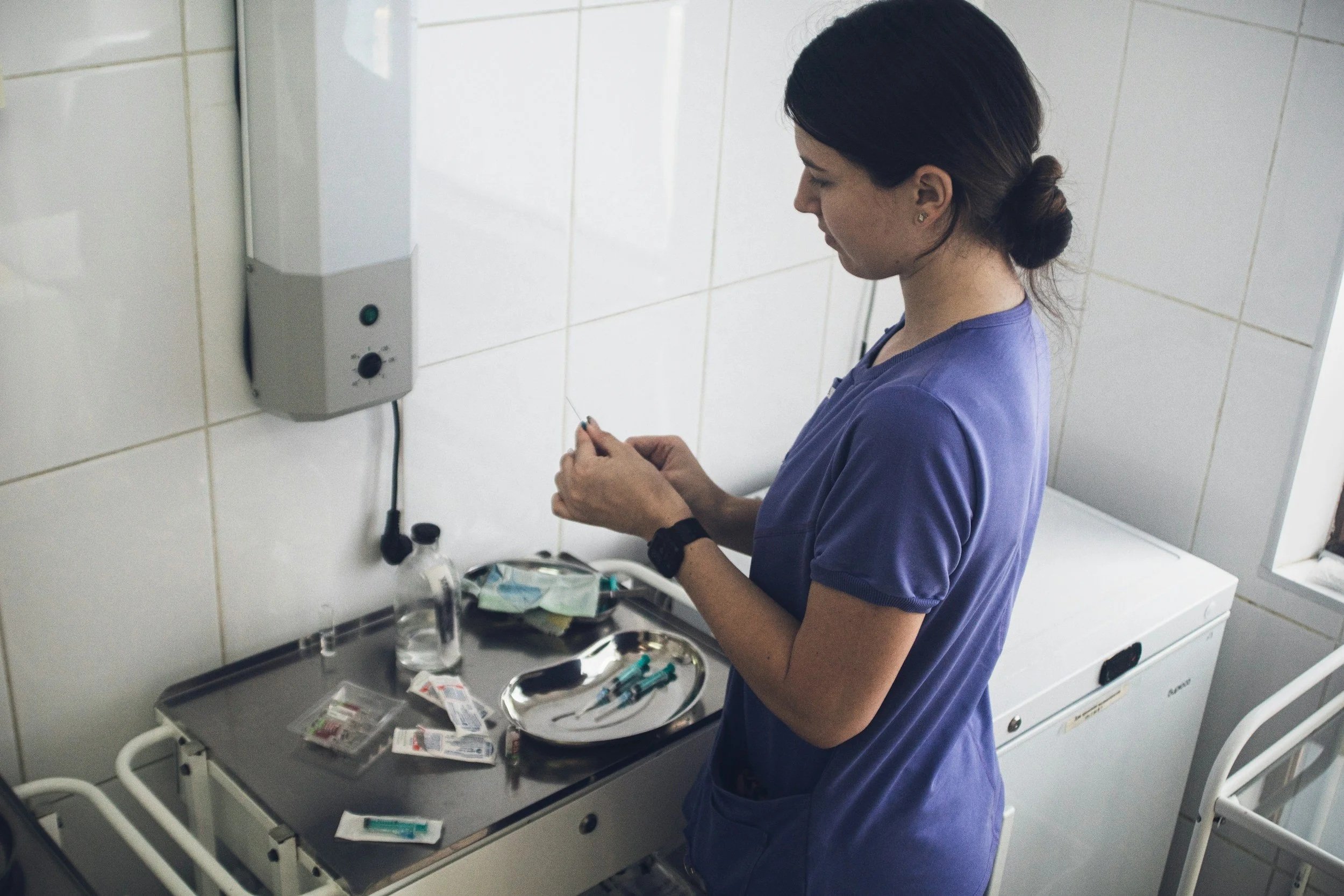One of the biggest reasons women delay or avoid egg freezing is uncertainty with how they’ll be able to manage work effectively while completing the process. The good news is, with a little bit of planning, you can easily navigate a demanding work schedule and freezing your eggs.
How long is the process, and how much time will I need to take off from work?
Office visits while you’re freezing your eggs usually happen early in the morning, so you can still get to work on time.
The egg freezing process takes about two weeks, from day 1 of your cycle (the first day of your period) to the day of the egg retrieval. During that time, you’ll be taking hormone medications at least once daily to stimulate egg production. You’ll also be visiting your doctor’s office for 5–7 visits during that time so your healthcare team can monitor the growth of the eggs and ensure that you’re on track for your egg retrieval.
But don’t panic! These brief office visits typically happen in the morning before work, in the time period known at fertility practices as “monitoring hours.” At Extend Fertility, we open at 7am, seven days a week. Many women go through the entire 8–11 days of medication without taking any days off from work.
Do I need to take off work for the egg retrieval?
You’ll have an estimate of the day of your egg retrieval when you start your cycle, but it won’t be set in stone until later in the cycle.
The egg retrieval is the only day that you’ll need to take off from work during your egg freezing cycle. The procedure itself is fairly quick (15–20 minutes), and even with intake and recovery you’re likely to be in and out of the office in less than two hours. But because you’ll be given IV sedation medication for the procedure, you’ll probably feel sleepy and groggy post-procedure, so you should plan on taking off the whole day.
The exact timing of your retrieval will depend on your individual response to the medication. When you start your cycle the healthcare team will give you an estimated retrieval date; the exact date will become clear as you get closer to the end of your cycle.
Can I travel for work during my egg freezing cycle?
It’s recommended that you try to stay in town during your cycle. But if you absolutely must travel for work, it’s possible (especially earlier in your cycle) with a little organization.
It’s easiest to avoid travel during your egg freezing cycle, but if you must travel, make sure to plan in advance.
When traveling, you’ll have to bring your injectable medications, along with supplies like gauze and ice packs to keep the medications cold until they can once again be refrigerated. If you’re flying, you’ll need to make sure you have the proper documentation to bring your injectables on the plane. And if you’ll be away at a time when you would normally be coming in for a monitoring visit, you’ll have to work with your healthcare providers to find a clinic near your destination who can perform “outside monitoring” and send the results back to your team.
If you’ll have to travel at any point during your cycle, tell your healthcare team as soon as you can, so you can all plan accordingly. For simplicity, it may be easiest to arrange your cycle around any known travel plans.
About 1 in 4 women experience PMS-like symptoms from egg freezing medications.
What about side effects?
About 25% of women experience PMS-like symptoms, including mood swings, headaches, and bloating, while taking hormone medication for egg freezing. So while you don’t need to take off from work, you should be aware that there’s a chance you won’t be feeling your most energetic or productive during the cycle, and take that into consideration as you plan your cycle and work schedule.
Should I tell my boss?
Whether or not you tell your boss—or your coworkers—about your decision to freeze your eggs is entirely up to you, and likely depends on your work policies, your schedule, and how close you are with your colleagues. If you’re comfortable sharing that you’re freezing your eggs, you might find that it’s a positive experience to have the understanding and support of those you work with as you take this step. It’s also absolutely okay not to share that information if you prefer not to. Do what suits you best!
Dr. Joshua Klein is an accomplished board-certified reproductive endocrinologist and assistant professor of Obstetrics, Gynecology, and Reproductive Science at the Icahn School of Medicine at Mount Sinai. He earned his medical degree at Harvard University, completing his residency in Obstetrics, Gynecology and Reproductive Biology at Massachusetts General and Brigham & Women’s Hospitals, and his fellowship in Reproductive Endocrinology and Infertility at Columbia University. He is passionate about helping women understand their fertility and make smart, informed, and individualized decisions about their options for planning a family.
Learn about Extend Fertility on Freeze.




































